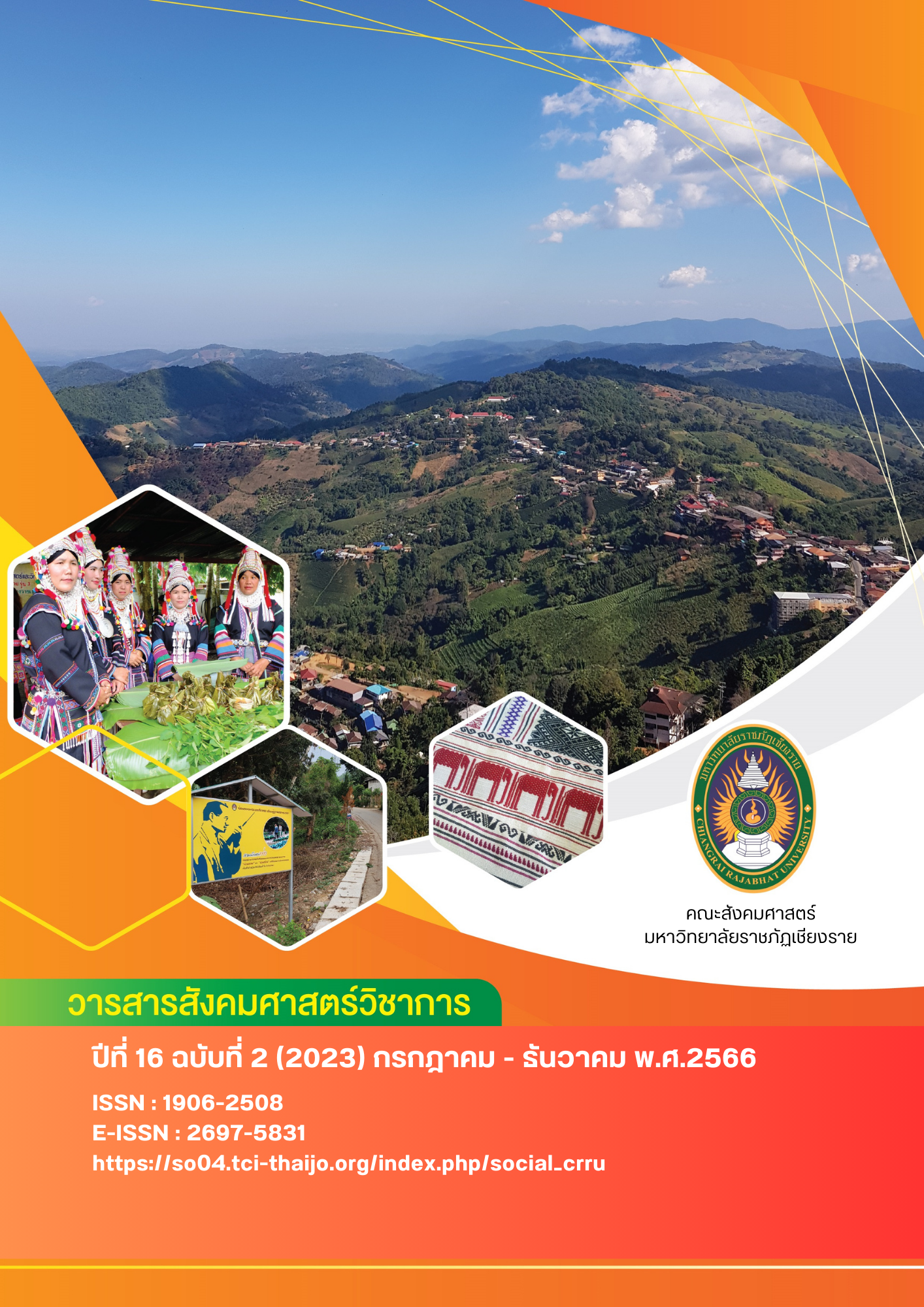หลักสูตรแฝงว่าด้วยเรื่องกลวิธีการตีตราตนเองของนักเรียนในสถานศึกษาขนาดเล็ก : การศึกษาเชิงปรากฏการณ์วิทยา
Main Article Content
บทคัดย่อ
This research aimed to study the causal relationship between learning factors from families' hidden curriculum and students' self-stigma in small educational institutions. This study was qualitative research, according to the phenomenological approach, and the study from the key informants were two students and three parents, a total of 5 people. Data were collected through in-depth interviews and observations in the research area. The research tools were the personal interview record form, In-depth interview questions, Field notes, and Audiotape records. The research results revealed that the hidden negative courses that caused self-stigma were as follows: Poor household status made it difficult to continue higher education. 2) People with poor status should only study in the vocational field or not at the higher education level. 3) Education in small educational institutions should not focus on academics but should focus on etiquette and volunteering. And 4) The concept of family has no expectations of students' education or future, leading to students not knowing what they want to do work. By passing on the family context factors, Atmospheric factors, family environment Factors regarding family expectations regarding education, Teachings about education, and views of parents towards the school. These hidden curricula affect concepts and attitudes, leading to self-stigma of learners, namely 1) lack of interest in learning, 2) self-impairment, and 3) lack of planning for the future. This study benefited teachers or school practitioners who should understand and give these groups of students opportunities because the teachers were a vital medium to instill positive attitudes and ideas.
Article Details

อนุญาตภายใต้เงื่อนไข Creative Commons Attribution-NonCommercial-NoDerivatives 4.0 International License.
รายละเอียดของลิขสิทธ์
เอกสารอ้างอิง
Assawapoom, S. (2014). Educational Institution Administration according to Modern Education Reform Guidelines. revised edition. Ubon Ratchathani: Ubonkit Offset Printing. (in Thai)
Chaichalermpong, W. (2004). Factors affecting Learning Outcomes from Hidden Curriculum which Influence Professionalism of Pharmacy Students. Doctor’s Dissertation of Education in Higher Education: Chulalongkorn University. (in Thai)
Creswell, J. W., & Creswell, J. D. (2018). Research Design: Qualitative, Qualitative, and Mixed Method Approaches. 4th ed.. Sage.
Corrigan, P. (2004). How Stigma Interferes with Mental Health Care. American Psychologist 59(7): 614-625. https://doi.org/10.1037/0003-066X.59.7.614.
Corrigan, P.W., Watson, A.C. & Barr, L. (2006). The Self-sigma of Mental Illness: Implication for Self-esteem and Self-efficacy. Journal of Social and Clinical Psychology 25(8): 875-884.
Fung, K. M. T., Tsang, H. W. H., & Corrigan, P. W. (2008). Self-stigma of People with Schizophrenia as Predictor of Their Adherence to Psychosocial Treatment. Psychiatric Rehabilitation Journal 32(2): 95–104. https://doi.org/10.2975/32.2.2008.95.104.
Kongsanor, S. (2015). Problems of Small Schools. https://www.parliament.go.th. September 25. (in Thai)
Ministry of Education. (1999a). Explanation to the National Education Act. Bangkok: Krom Sas Sa Na. (in Thai)
Ministry of Education. (1999b). Concepts and Policies of the Ministry of Education, Basic Education Reform for the People. Bangkok: Lat Phrao Teachers' Council of Thailand. (in Thai)
Ministry of Education. (1999c). Guidelines for Implementing Education Reforms. Bangkok: Lat Phrao Teachers' Council of Thailand. (in Thai)
Ministry of Education. (2021). Transfer of school administrators under the Office of the Basic Education Commission for the year 2021 (Educational Institution Size). https://otepc.go.th/th/content_page/item/. September 22. (in Thai)
Posner, G.J. (1992). Analyzing the Curriculum. New York: McGraw-Hall, Inc.
Rakponmeung, C. (1991). Basics of Education: Social Principles and Concepts. Bangkok : Pimdee. (in Thai)
Tippayapatanakun, P. (2012). Hidden Curriculum: Ideologies and Everyday Interactions at A Foster Home-School. Master’s Thesis of Sociology and Anthropology: Thammasat University. (in Thai)


